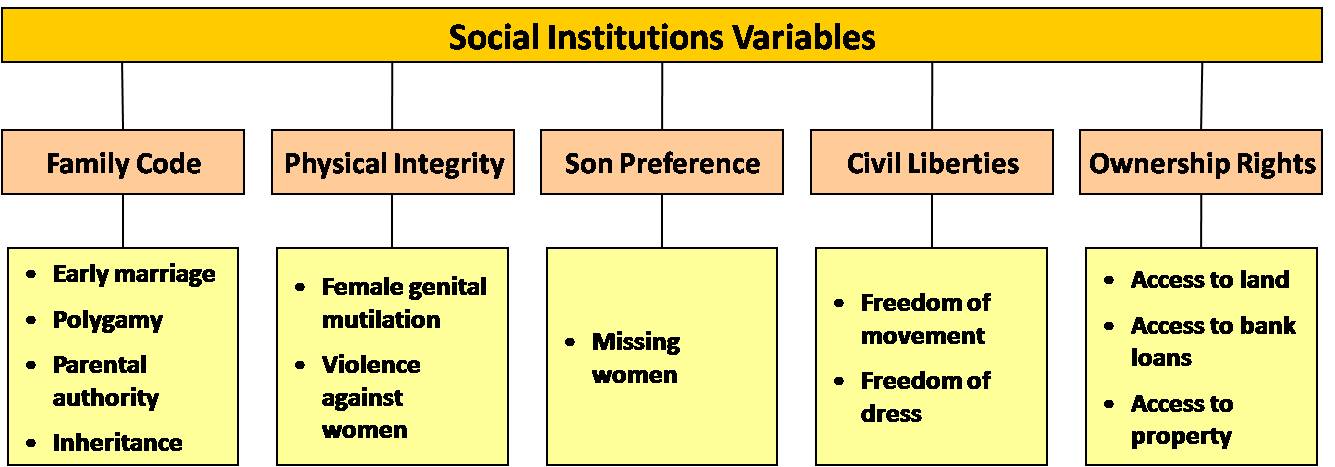The Social Institutions and Gender Index (2009)

What are social institutions?
Social institutions comprise norms, values and attitudes. They often manifest themselves in traditions and cultural practices that are performed by the members of a society. Social institutions have often been in existence for centuries and thus reflect the deeply enshrined normative value system of people. They can be reflected in the formal institutional framework of a society (e.g constitutions, laws, legal mechanisms). In many countries, however, social institutions constitute a separate value system that exists apart from the formal institutional framework. Especially in developing countries where formal mechanisms and the rule of law are weak, social institutions have a large impact on the social and economic life in a country.
Social institutions are particularly relevant in the area of gender equality. In many countries, the empowerment of women is a relatively new phenomenon that stands in stark contrast to the traditional way of life. Several examples show how social institutions can obstruct or completely annihilate formal legislation intended to favor gender equality.
Construction of the Indicator
SIGI is based on a selection of indicators from the Gender, Institutions and Development Data Base . It specifically draws on the GID’s social institutions variables that are grouped into five categories or subindices: Family Code , Violence against women, Civil liberties , Son Preference and Ownership rights. The index is an unweighted average of these 5 subindices and measures on a scale from 0 to 1 the level of gender inequality in social institutions (higher levels indicate greater inequality). Each term in the SIGI formula is squared to allow for partial compensation.
Use of the Indicator
Econometric analysis using the SIGI have shown the significant impact of social institutions on gender equality outcomes. For example, higher levels of gender inequality in Social institutions are strongly correlated to lower participation of women in paid labor. Moreover, higher levels of inequality are not necessarily associated with per capita income. Some high-income countries in the Women in the Middle East and North Women and African Economic Development (MENA) region, for example, have high levels of gender inequality. Education, on the other hand, seems to be a strong promoter of women’s rights. The higher the percentage of women who can read and write, the lower the discrimination they suffer in social institutions.
The SIGI and the MDGs
Could social institutions and gender inequality be the missing link to achieving the Millennium Development Goals?
References
- Johannes Jütting, Christain Morrisson, Jeff Dayton Johnson and Denis Drechsler (2008): Measuring Gender (In)Equality: The OECD Gender, Institutions and Development Data Base, Journal of Human Development, Volume 9, Issue 1 March 2008 , pages 65 – 86.
- Gita Sen (2007): Informal Institutions and Gender Equality, in: Jütting, Drechsler, Bartsch and de Soysa (eds.): Informal Institutions – How Social Norms Help or Hinder Development, OECD: Paris.
See also
- Family Code (Child marriage; Polygamy; Parental authority; Inheritance)
- Physical Integrity (Female genital cutting; Violence against women)
- Son Preference (Missing Women)
- Civil liberties ( Freedom of movement ; Freedom of dress)
- Ownership rights (Access to land; Access to bank loans ; Access to property )
- Gender, Institutions and Development Data Base
- Gender, Institutions and Development Data Base Variables: Family Code
- Gender, Institutions and Development Data Base Variables: Social Institutions


